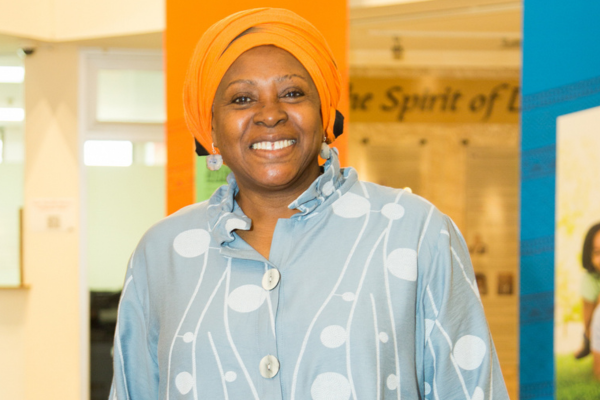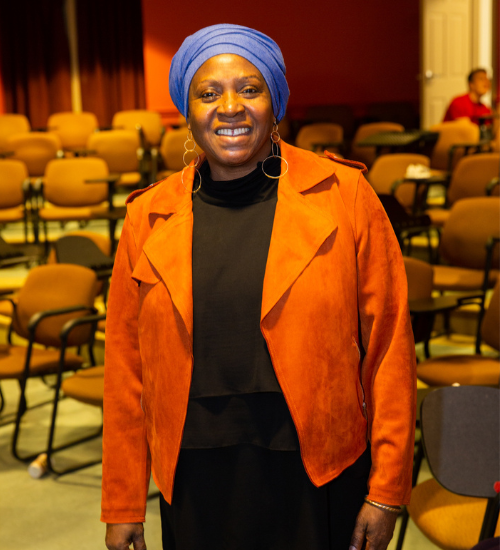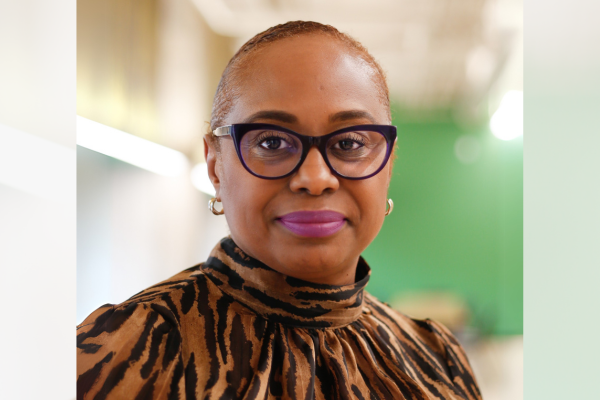For Afua Cooper, unveiling the truth of Canada’s African history isn’t just a curriculum — it’s a purpose


It’s a moment that Afua Cooper still vividly recalls. It was the early 1980s, and Cooper, then newly arrived in Canada, was considering a waitressing job at local restaurants in Toronto.
“You would walk into a place looking for work, and they wouldn’t even try to hide it,” she says. “The woman just looked at me and said, ‘I’m sorry, but we just don’t want Jamaicans. You’re not the kind of people we want to hire.’”
During that time — and even today — Canada was thought by some as “post-racial-nice,” having avoided the same depth and lasting racism found across the United States. But for Cooper, the reality was different.
“These things still happened here, not that long ago and even today, though the language has changed so the actions don’t appear nearly as racist.”
These experiences have informed Cooper’s work during her celebrated career. An authority on Black Canadian slavery and Black Canadian studies, she brings her expertise to the department of historical and cultural studies at U of T Scarborough as a new faculty member.
She was raised in the Whithorn district of Westmoreland, Jamaica, in the post-independence era. Her parents, by comparison, had grown up under British colonialism.
“I guess the people at the Ministry of Education decided that little Black children should learn about themselves,” says Cooper, who later became a founding member of an African Studies Club at Camperdown High School in East Kingston. “So, I thankfully grew up with a strong notion of who I was.”

By December 1980, having migrated to Toronto to pursue higher education, Cooper was fully dedicated to exploring history and the African diaspora as an undergraduate at the University of Toronto—a time when even the concept of Black studies, for example, was rare in Canadian universities.
“When I was a student, the university resisted Black-focused curricula, and hiring Black faculty therefore felt superficial,” says Cooper. “Now, with the Black Research Network, Black faculty caucus, and dedicated programs for Black students, the commitment to diversity feels genuine, and I’m glad to be a part of it.”
She belongs to a group of scholars who are increasingly fluent in different mediums. In addition to being a professor, she’s presented her work through poetry and is an award-winning author having published 13 books spanning genres including history, children’s literature and fiction.
Cooper likens her educational approach to making gumbo: “I put everything into it, though as a vegan, it’s strictly plant-based, representing the Black diaspora,” she says. “Teaching isn’t a single trajectory, it’s about sharing the joys of Black culture and the multifaceted nature of our struggles.”
As a testament to that, Cooper’s wanderings from traditional paths in teaching about African studies have led to a three-year-long project, A Black People’s History of Canada, which was founded in 2021 with over $1-million in grant funding from the Department of Canadian Heritage.
The aim of the project is to cover Black Canadian history from 1604 onward with the help of 13 researchers who have cataloged records across Canada, from British Columbia to Newfoundland.
“Teachers often say, ‘I’d like to teach Black history, but I can’t find anything,’ which is frustrating,” says Cooper. “Now there are no excuses; we’re writing curricula and guides with school boards, and we’ve partnered with government agencies responsible for education. It’s been a true labour of love.”
For Cooper, returning to U of T in light of her efforts is as much an opportunity to share her work with like-minded visionaries as it is a homecoming.
“I went into labour twice at Robarts library, once with each of my daughters,” she adds with a laugh.
“They both spent a lot of time there when they were younger, so I’m thrilled to be back to showcase a history of African and Black people that has been so trampled upon and denied. For me, this is my purpose—to restore and share that history.”
This story originally appeared on UTSC News.







